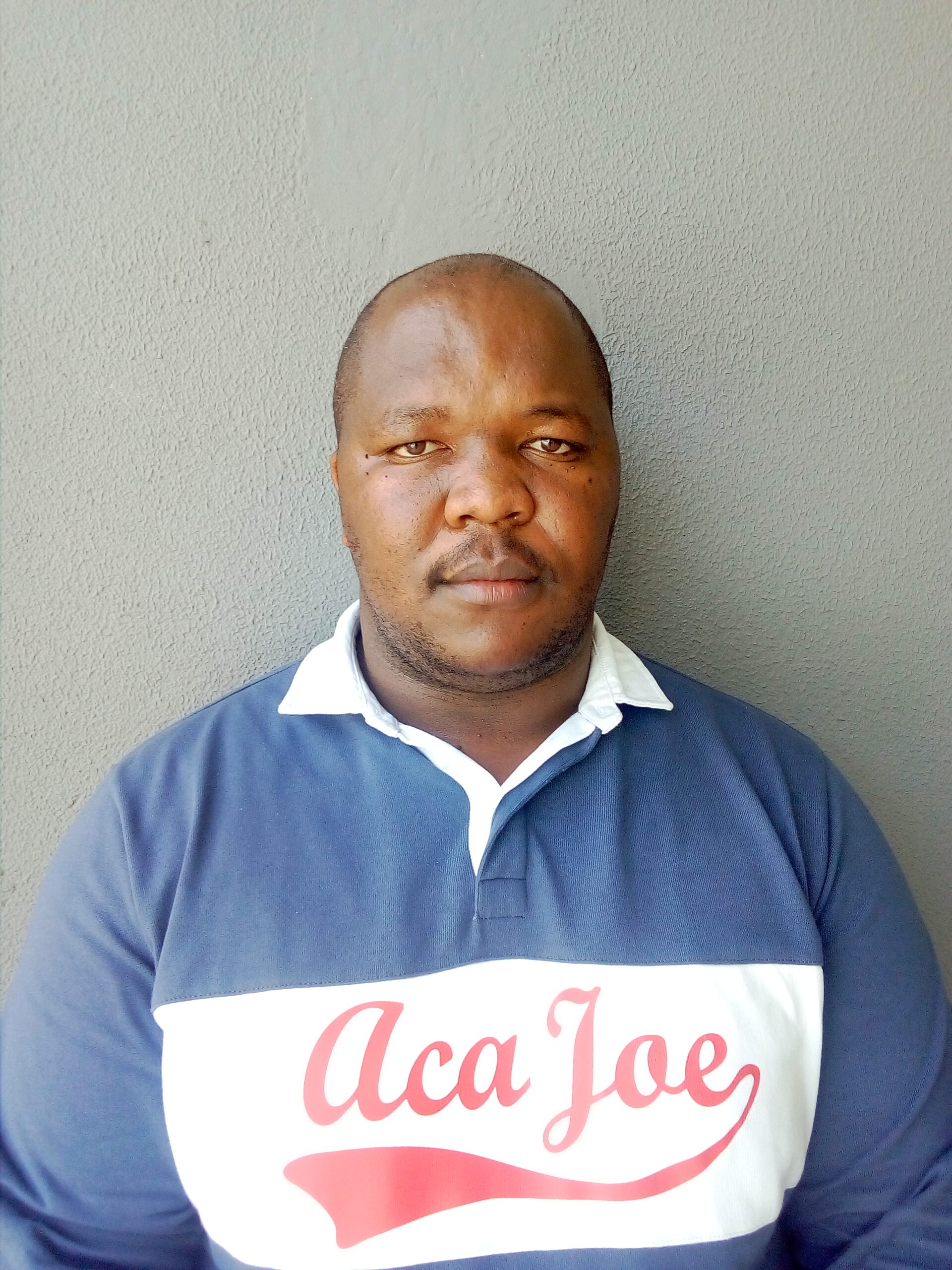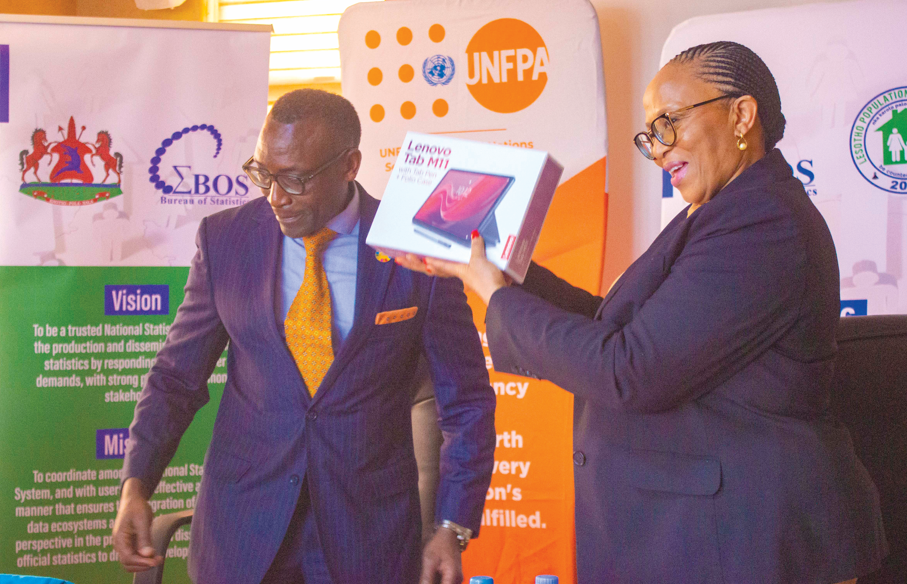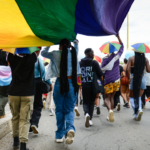Minister of Finance and Development Planning, Dr Retšelisitsoe Matlanyane, has assured that preparations are well underway for Lesotho to conduct its next population census in April 2026.
According to Malehloa Molato, Director of the Bureau of Statistics (BOS), the census will require more than M200 million to carry out.
The census, in line with international standards, is expected to take two weeks, though this period may be extended if necessary. The exercise is scheduled to begin on 12 April 2026.
These details were unveiled during the official launch of the census exercise yesterday, at which the ministry received golf shirts, bags, and tablets from the United Nations Population Fund (UNFPA).
Dr Matlanyane has also launched an awareness campaign, urging the public to support the exercise to ensure its success. She emphasised that the census is an inclusive process, covering every segment of the population.
Population censuses in Lesotho are conducted every ten years, with the last one carried out in 2016. According to that census, Lesotho had a total population of 2,007,201, comprising 982,133 males (48.9 percent) and 1,025,068 females (51.1 percent).
Children aged 0–14 numbered 637,444 (31.8 percent), almost evenly split between boys and girls. Youths aged 15–35 accounted for 794,940 (39.6 percent), while the elderly, aged 60 and above, made up 6.1 percent of the population.
About 8,000 people, predominantly youth, will be employed for the upcoming census.
Molato highlighted that since independence, Lesotho has conducted scientific censuses, aimed not only at gathering essential data for national planning but also at empowering policy decisions.
“The census enables socio-economic analysis and ensures all households are counted,” she said, noting that enumerators will collect information on age, sex, education, employment, household composition, access to electricity and sanitation, sources of drinking water, and housing materials.
She added that the data will also facilitate research, aiding the private sector, non-governmental organisations, and the media, while helping monitor progress toward global development goals.
UNFPA Acting Representative John Kennedy Mosoti pledged continued support, handing over 50 symbolic tablets for enumerators. Mosoti acknowledged challenges in procuring all 8,000 tablets but said some would be borrowed from neighbouring countries that recently conducted censuses.
Mosoti stressed the importance of counting everyone, including children, the elderly, and persons with disabilities.
Dr Matlanyane emphasised that the census is crucial for inclusive development and evidence-based policymaking. “It tells us who we are, where we live, what we do, and what we eat. The data speaks for those who cannot voice their needs. It is a mirror reflecting the face of our nation,” she said.
The Minister further highlighted that the upcoming census will be fully digital, marking a historic leap for Lesotho. Real-time data collection will reduce errors, accelerate preliminary results, and enable faster government analysis. “Every household counts. Every life counts. No one should be left behind,” she urged, advising the public to welcome fieldworkers while remaining vigilant against impostors.
She also underscored that the census will empower the government to craft targeted policies, particularly to address unemployment. The United Nations will continue to provide both funding and technical support for the exercise.
Molato added that recruitment for census staff will follow Public Service procedures, with advertisements to be published soon.
Summary
- These details were unveiled during the official launch of the census exercise yesterday, at which the ministry received golf shirts, bags, and tablets from the United Nations Population Fund (UNFPA).
- She emphasised that the census is an inclusive process, covering every segment of the population.
- The Minister further highlighted that the upcoming census will be fully digital, marking a historic leap for Lesotho.

Thoboloko Ntšonyane is a dedicated journalist who has contributed to various publications. He focuses on parliament, climate change, human rights, sexual and reproductive health rights (SRHR), health, business and court reports. His work inspires change, triggers dialogue and also promote transparency in a society.







